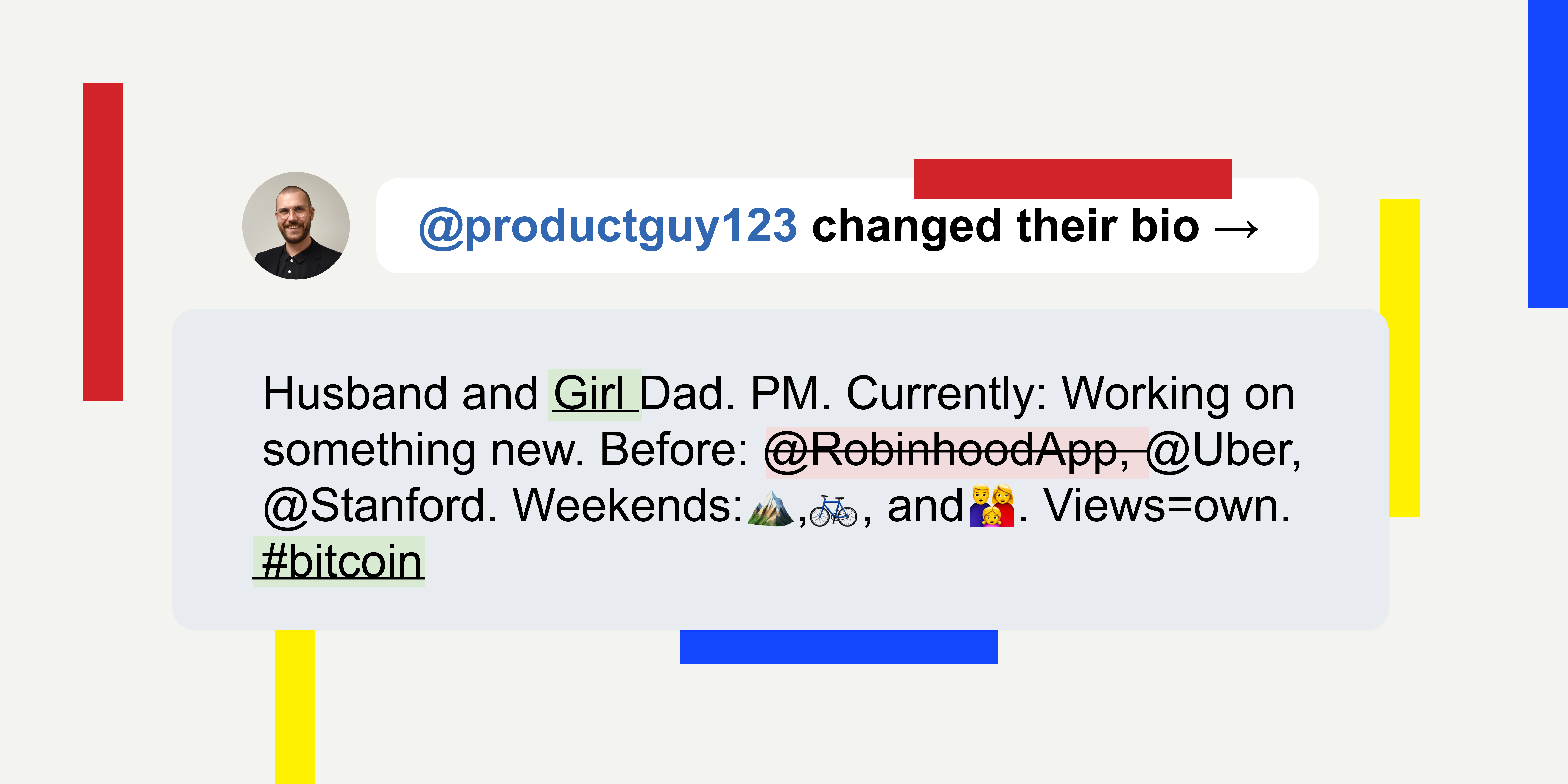
Hey, Nathan here! Remember a few months ago when we published a wonderful essay on LinkedIn’s ridiculousness? It was one of Divinations most popular posts ever, and it was written by Fadeke Adegbuyi, a brilliant observer of internet culture who also is a senior marketing manager at Doist. Today I’m thrilled to share with you Fadeke’s latest work—this time examining our obsession with identity through the lens of a Twitter bio tracking app called Spoonbill. Enjoy!
Elon Musk updated his Twitter bio 23 times in 2020. He last changed it on February 4, 2021 at 6:31 AM PST. A few versions include “Born 69 days after 4/20,” “SoundCloud Rockstar,” “Budgie Smuggler,” and “#bitcoin.” I didn’t spend months stalking Musk’s page, developing an encyclopedic knowledge of his time spent in the Twitterverse. I looked it up on Spoonbill.
I could use the app to give you similar information on any celebrity or public figure with a Twitter account. Or I could use it on you. If I wanted to, I could see all the changes you’ve made to your profile since you first signed up: your name, your location, your website, your pinned tweets. Spoonbill’s creator, Justin M. Duke, describes the app, which has nearly 93 thousand users, as a “tracking tool for online metadata.” Over 45K of those users have signed up to receive daily emails that aggregate updates across all the Twitter profiles they follow. The open rate for these daily emails hovers around 55%, well above average for email campaigns.I asked Hunter Walk, a Partner at the seed-stage venture capital firm Homebrew and an avid Spoonbiller, why he uses the app :
"It's fun to see people wordsmithing their bios, changing the order of the portfolio companies they list based on startup performance, subtly announcing personal life changes...Instead of letting Twitter decide what's worthy of notification, I get to see every change and decide for myself what's interesting, often with context that the algorithm is unaware of."
The tracked changes that Twitter’s algorithm might register as neutral additions and subtractions can indeed be revealing to onlookers. Spoonbill captures what the people we follow are changing their bios to express; an investment exit, a tongue-in-cheek joke, or the end of an internet cult affiliation.
Social apps have made creepers out of all of us. Whether it’s scrolling to the start of someone’s Instagram feed or looking through Venmo transactions, we’re constantly peering into others’ online lives. Spoonbill not only satisfies our tendency for online lurking, but pushes it into voyeur territory; surfacing what’s meant to be hidden is intimate in a way that scrolling a timeline isn’t. The tool provides a glimpse into the specific ways we represent ourselves to the world, the unseen effort with which we express our identities, and how the uncanny feeling of being watched informs our sense of self.
Twitter Tracked Changes
Twitter is an interesting observation ground for online identity. Snapshots at Big Sur are meant for Instagram’s photogenic feed, while professional milestones belong on LinkedIn’s alternate universe. But in the Twitterverse, life and work converge. People are just as likely to share career news as they are to live-tweet a Netflix binge; professional gripes commingle with criticism of political leaders; snark and sincerity live side-by-side.
Twitter’s bio section, then, is a tall order: compress your entire identity into a single line item. Many use the space to convey their own complexity––smart yet funny, accomplished but approachable. Society has progressed past the need for the phrase “works hard, plays hard,” but that’s what we’re trying to convey in our own personalized way: we contain multitudes. We are real.
Spoonbill reveals the way that people play with their latest positioning of self, carving out character space for their newly important aspects of identity.
Hustle culture looms large and professional accomplishments convey worth. In turn, notable work, career highlights, and impressive affiliations take center stage in our Twitter bios, the structure and grammar of which are heavily coded. Freelance journalists add and shuffle their bylines, arranged in order of prestige –– @nytimes is meant to come first. In my corner of Tech Twitter, where optionality is king, it’s now effectively a meme to be “starting something new,” marked increasingly by the addition of “Substack:”, “Scout:”, or “Side project:” to one’s bio. Users adding “permanent student” or “forever learning” to their bios aren’t pupils at cruel and unusual institutions, they’re signalling intellectual curiosity.
The Only Subscription
You Need to
Stay at the
Edge of AI
The essential toolkit for those shaping the future
"This might be the best value you
can get from an AI subscription."
- Jay S.
Join 100,000+ leaders, builders, and innovators

Email address
Already have an account? Sign in
What is included in a subscription?
Daily insights from AI pioneers + early access to powerful AI tools

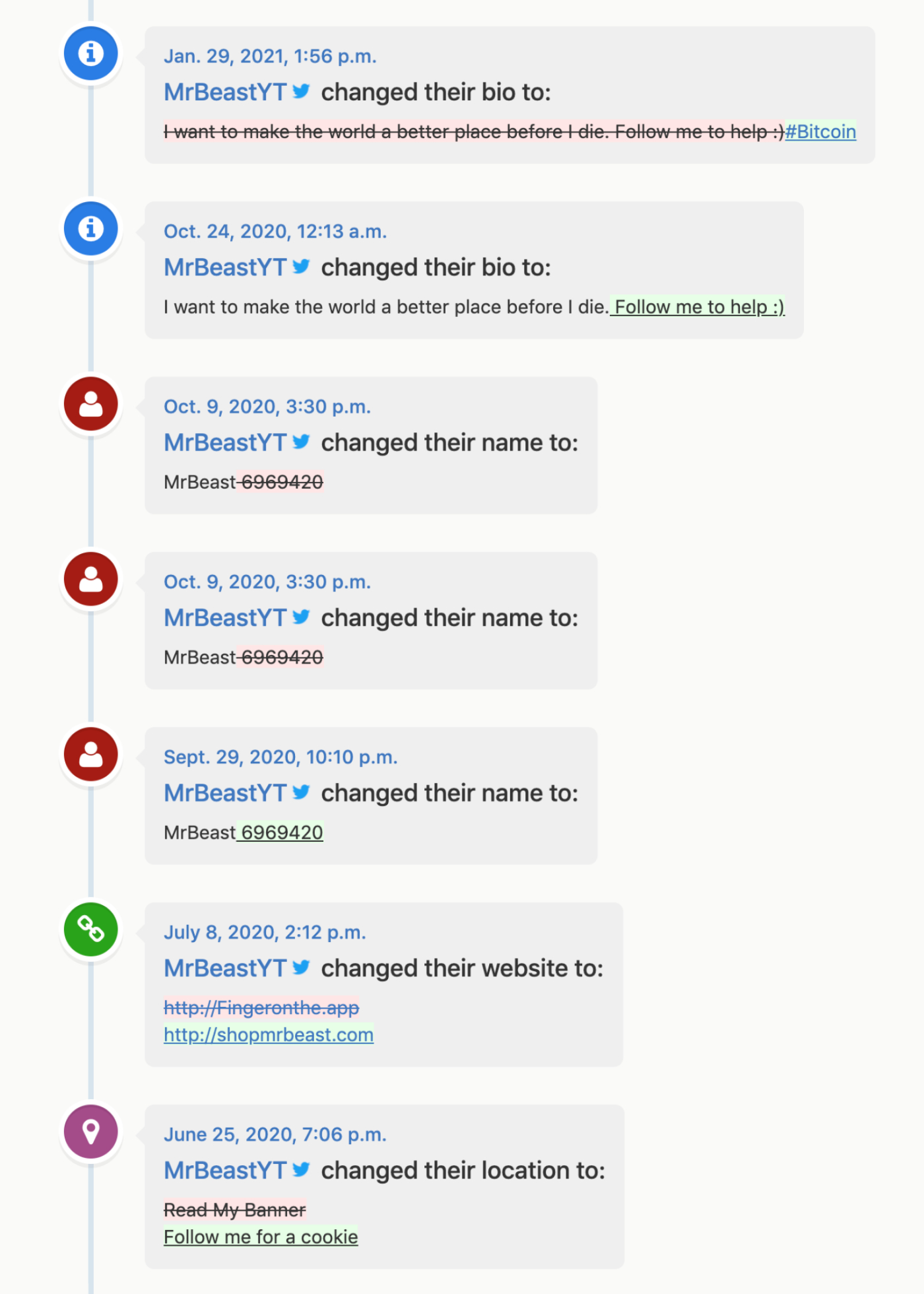
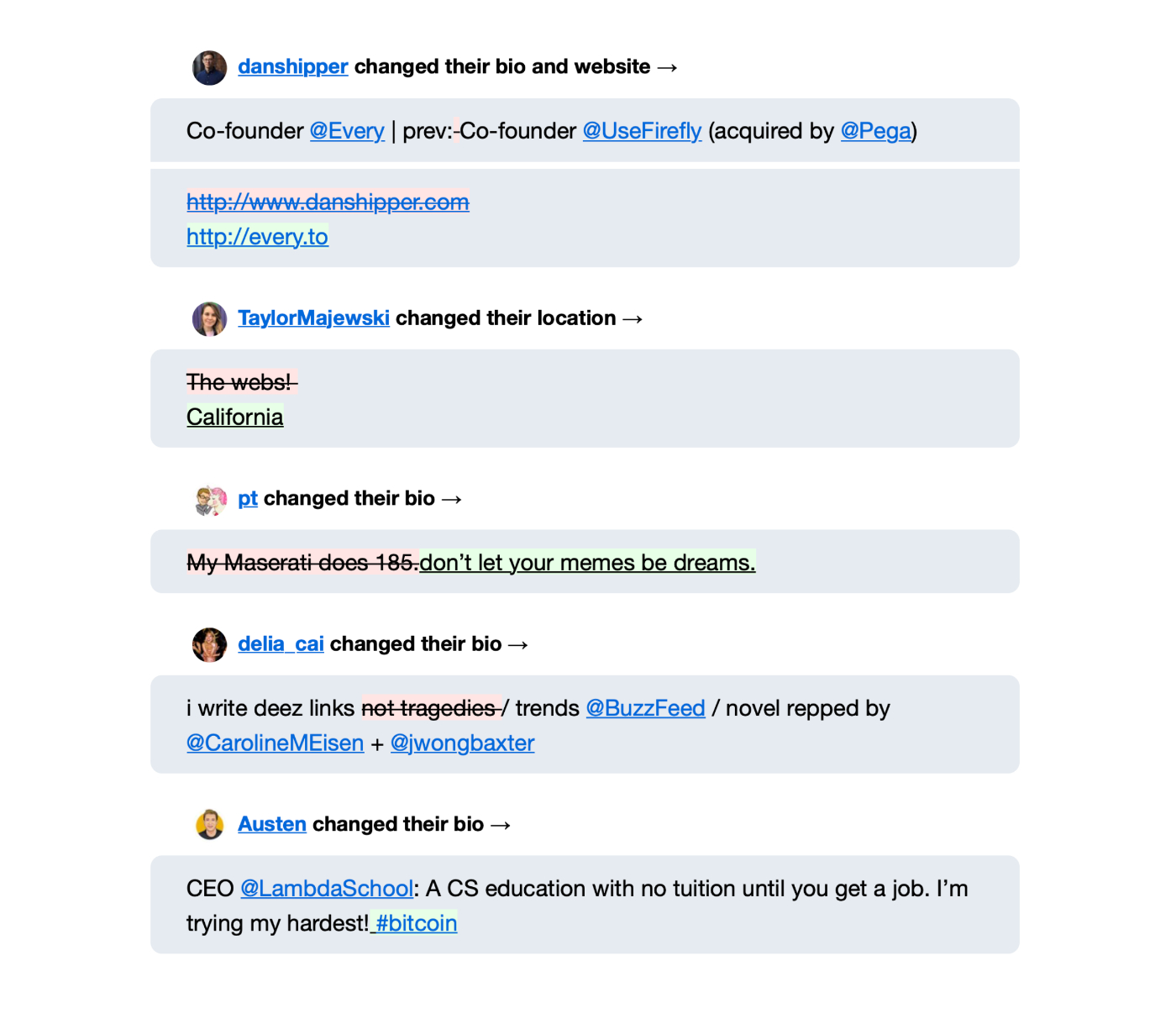
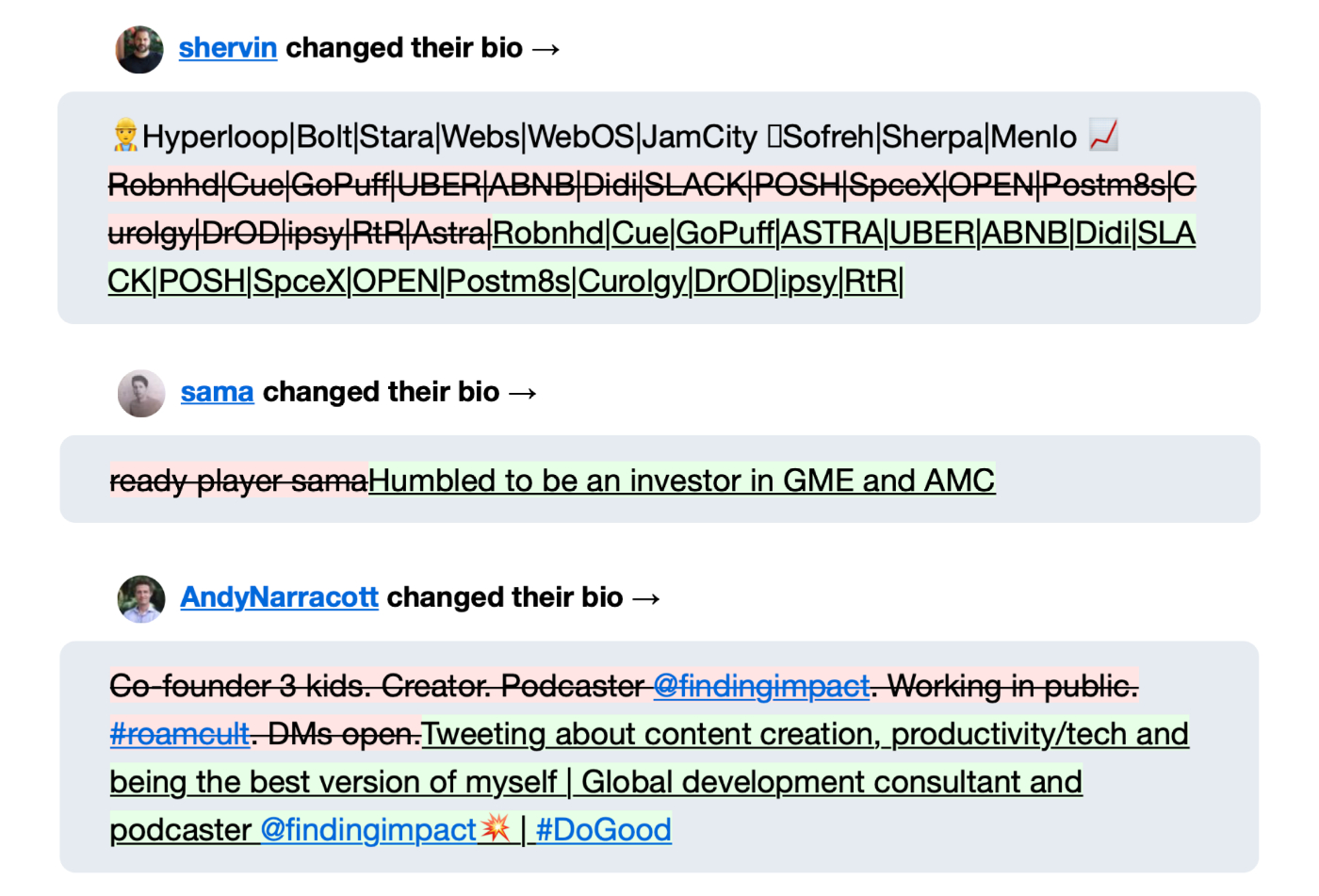
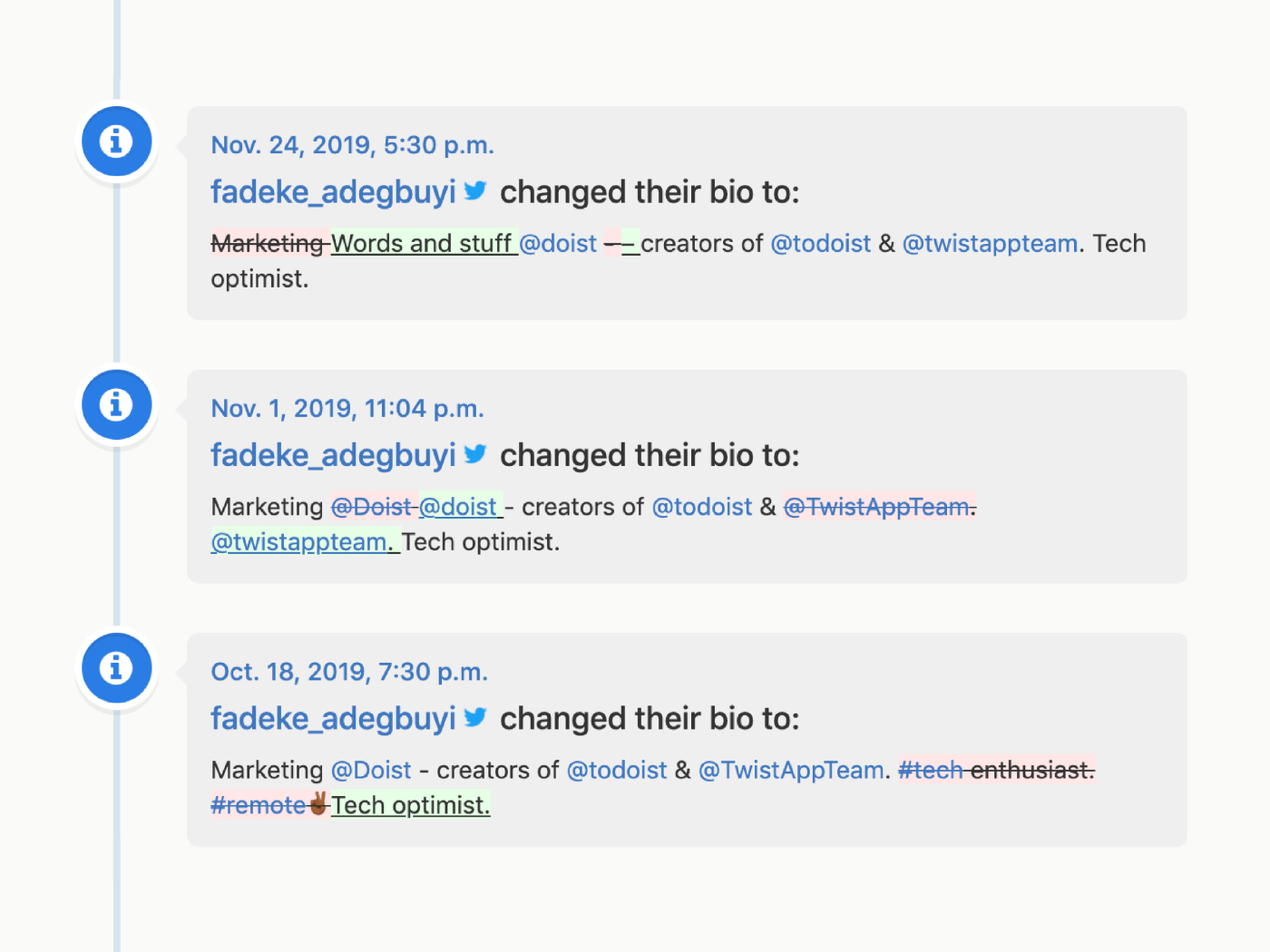
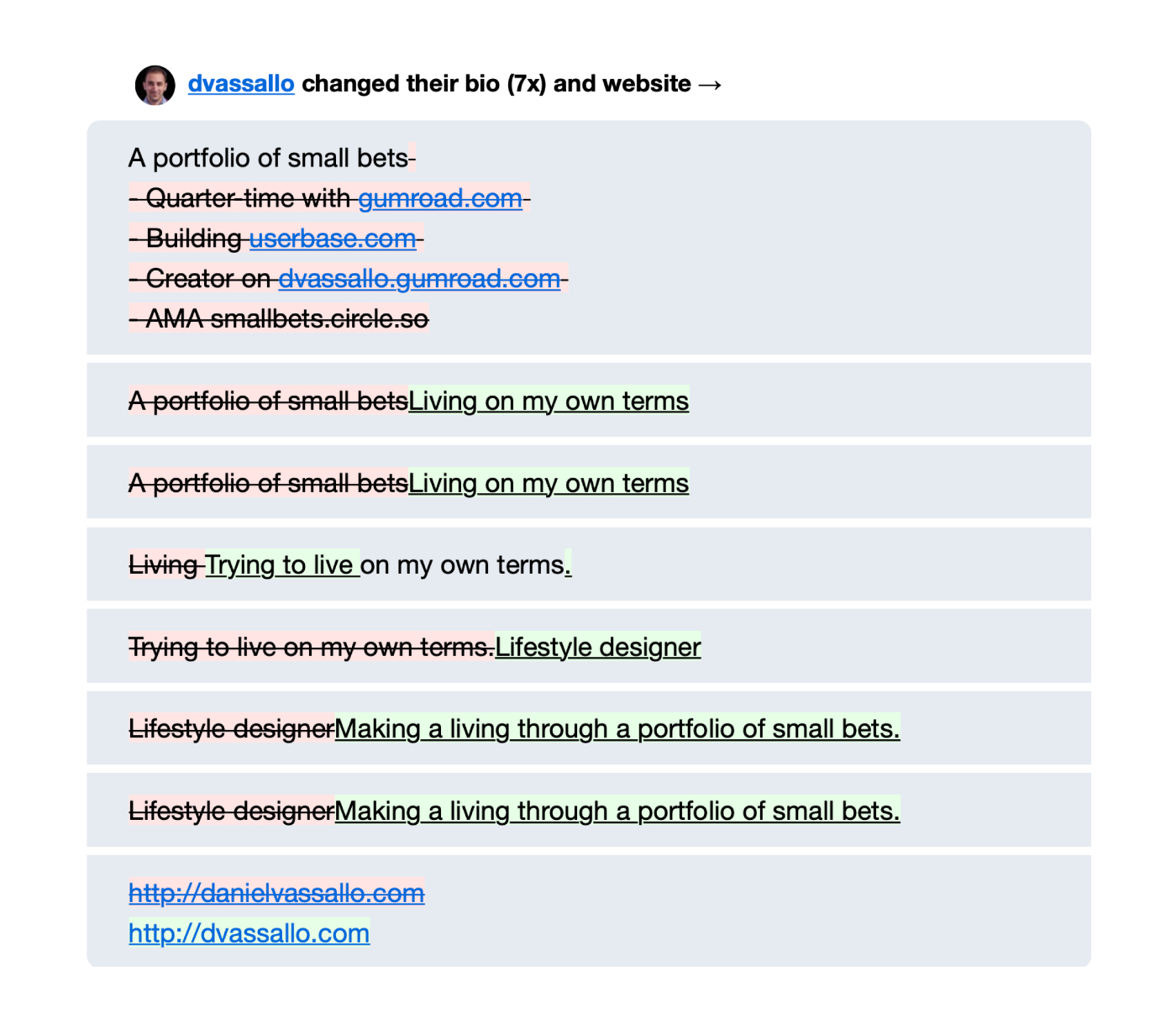






Comments
Don't have an account? Sign up!